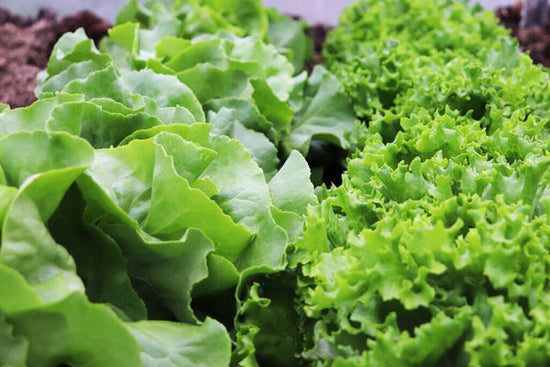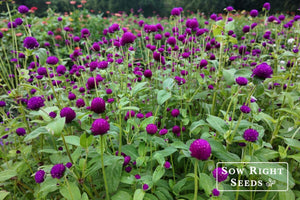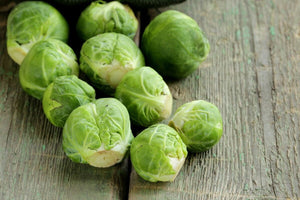Harness Summer’s Growth Surge: Tips to Nourish Plants in Hot Weather
Seasonal gardeningAh, summer! It’s the most exciting time of year for many gardeners, thanks to all of the vigorous growth you can see. It’s gratifying to see those tiny seedlings growing up, flowering, and even beginning to fruit.

But have you ever wondered why plants grow more in the Summer? And how you can keep them healthy and thriving?
Why Do Plants Grow So Well in Summer?
Longer days mean extra sunlight for photosynthesis, the process by which plants use sunlight to create fuel from carbon dioxide and water. Just like with us, plants that are well-fed generally grow faster. However, more heat isn’t always better, and some plants can even slow down their growth or die off in summer temperatures.
Summer Plants that Love the Heat
The flavors we most associate with summer are from plants that came from warmer climates. Tomatoes, peppers, eggplant, corn, melons, and squashes all love the heat because they’re adapted to the tropics or hot conditions. Summer flowers also thrive in the glare of the hottest part of the year. And, of course, there are cacti and succulents that can survive even the harshest conditions.
Summer garden plants generally thrive in temperatures up to 90-96° F provided they are well-hydrated and cared for. Some plants are adapted to survive even higher temperatures.
Familiarize yourself with the weather trends in your area, and plant seeds that are rated for your region and growing zone.
Heat Loving Vegetables
Plants That May Struggle in the Heat
Different plants are adapted to specific temperatures and light exposure. These plants usually originated in cooler climates to grow in different conditions than the tropical heat loving plants mentioned above.
Certain flowering perennials will develop leaves and bloom in spring and early summer, only to die off completely once the temperatures rise. These plants adapt to the heat by staying dormant until the next year, when the cycle happens all over again.
Vegetables that typically struggle in the summer include kale, broccoli, cauliflower, cabbage, peas, radishes, and green leafy vegetables like spinach and lettuce.
There are many plants that struggle in the hottest part of summer, and others that can survive with a little TLC (and maybe summer in a sheltered area). Take note of the instructions on your seed packets.
To maximize your growing season for heat-sensitive plants, grow in the spring and autumn. If you do grow any of these plants in the heat of summer, consider using shade netting to give your plants a break from the hot summer sun and to help them retain moisture.

Flowers that Love the Heat
Summer Garden Ideas
Once it’s summer, how do you make the most of the season and keep your plants alive and healthy despite the heat? We have a few ideas.

6 Tips for Keeping Summer Plants Healthy
- Water carefully. Your plants will need extra moisture to survive in the heat, but the extra water might get too hot, especially in container gardens. Watering in the cool of the evening allows the water to penetrate without overheating the roots. Drip irrigation or soaker hoses can also be a big help.
- Use mulch. Mulch can help with hydration without water loss. It also helps with weed control.
- Keep one step ahead of weeds and pests. Your plants aren’t the only ones enjoying the season. Weeds are taking advantage of increased photosynthesis. Pests and diseases can also thrive in summer. Stay alert.
- Watch for signs of heat stress. Keep an eye out for plants that stop blooming, develop pale leaves, or become more susceptible to pests once the weather gets hot.
- Use a summer fertilizer. Frequent watering can leach nutrients from the soil. To promote healthy growth, consider a slow-release organic fertilizer, or apply a water-soluble liquid fertilizer every other week.
- Prune and deadhead as needed. You want your plants to direct their energy towards flower and vegetable production. Encourage this by pinching back, deadheading, and otherwise maintaining your plants during the growing season to keep them from switching to seed production mode.
Above all else, have fun! The summer growing season is busy, but it’s also fleeting. Take time to really savor those fruits, vegetables, and flowers of summer while you can.






Leave a comment